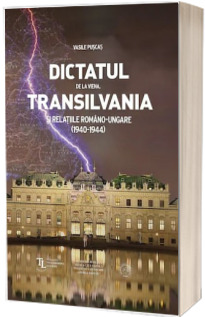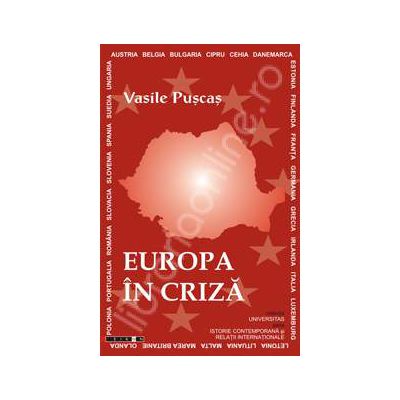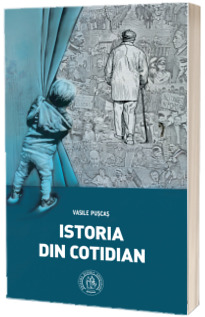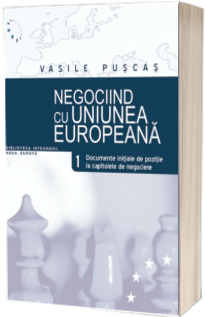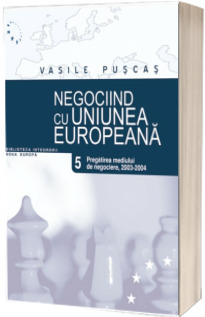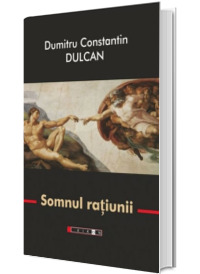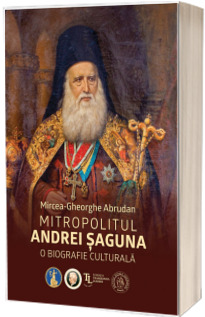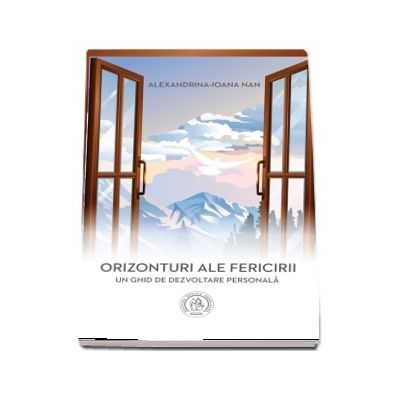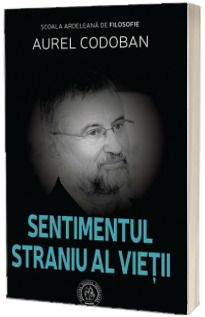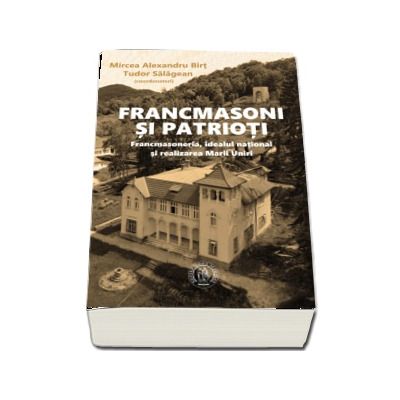Translated from the Romanian by Doina-Elisabeta Mihalcea
Editorial project published under the aegis of ”George Baritiu” Institute of History, The Romanian Academy and Transylvania Leaders Foundation.
Cover design: Ciprian Butnaru
First Cover Artwork: Foreign Affairs Ministers of Germany and Italy, Galeazzo Ciano and Joachim von Ribbentrop, at Belvedere Palace in Vienna
The Contemporary History collection is coordinated by Prof. Vasile Puscas, PhD.
However, since 1943, the Chancelleries of Moscow, London, Washington have been more and more concerned with Transylvania. In most cases, the interest of the Great Powers has been to maneuver Central European states on the basis of territorial aspirations, sometimes hidden under the slogan of minority rights. Transylvania continued to be seen as a territory of compensation! In fact, the case of German-Italian arbitration and mediation in the Transylvanian issue (1940-1444) had less to do with the real rights of any minority (except perhaps of the German minority), because the population of Transylvania has experienced all the sufferings, from the nightmare of mass murders (Romanians in Northern Transylvania), to refugees, expulsions, loss of property and unimaginable frustrations, as evidenced by the reports of the two German-Italian joint commissions inserted in this volume. Moreover, it contributed to the aggravation of the relations between Romania and Hungary, with consequences for them and for this part of Europe still insufficiently revealed by the historiographical investigation.
At the end of World War II, both the Westerners and the Soviets reached the common conclusion that a better ethnic border between Romania and Hungary than the one drawn by the Trianon Treaty was not possible. But this decision came after a huge historical tragedy experienced by Transylvanian inhabitants (Romanians, Hungarians, Jews, Germans, etc.) between 1940 and 1944. It was a traumatic experience both for the Romanian and Hungarian population. (Vasile Puscas)
* * *
Contents
Foreword
Transylvania as a Compensatory Territory (1940-1944)
"Transylvania and Transylvania Again
International and Domestic Context
Reactions to the Vienna Diktat
Occupation of Northern Transylvania
The Altenburg-Rogeri Commission
The Hencke-Rogeri Commission
Conclusion
Documents
List of documents
Index
* * *
List of documents
1. The Arbitral Decision of Ribbentrop and Ciano for Romania and Hungary (Vienna, August 30, 1940).
2. The Explanations of Minister Raoul Bossy (September 19, 1940) about the German-Italian Vienna Decision, on August 30, 1940.
3. Note of the German Legation in Romania, Addressed to the Ministry of Foreign Affairs of Romania, Regarding the Decision of the Governments of Germany and Italy to Send to Romania and Hungary an Inquiry Commission, October 14, 1940.
4. Report of the Consul General Ion Chinezu (Consulate General of Romania in Cluj) about the Situation in Cluj, October 17, 1940.
5. Note by the Minister of Foreign Affairs, Mihail Sturdza, on the First Meeting with the German-Italian Joint Commission, 16 October 1940.
6. Note on the Itinerary of the German-Italian Commission in Transylvania, October 17–27, 1940.
7. Report of Minister Gheorghe Davidescu on the Activity of the German-Italian Joint Commission in Transylvania, October 29, 1940.
8. Report of the Altenburg-Rogeri Commission, October 31, 1940 (Excerpt).
9. Recommendations of the German and Italian Governments to Romania and Hungary, Following the Investigation of the Altenburg-Rogeri Commission, December 3, 1940.
10. The Response of the Romanian Government to the Content and Recommendations of the Altenburg-Rogeri Commission's Report, December 4, 1940.
11. Telegram of the Romanian Legation in Germany, on the Eastern Politics of Romania, Addressed to the Minister of Foreign Affairs, Mihai Antonescu, July 19, 1941.
12. Telegram of the Romanian Legation in Germany, Sent to the Ministry of Foreign Affairs, about the Article "Bessarabia again Romanian”, Published in the German Press, July 31, 1941.
13. Report of the Romanian Legation in Germany, Addressed to the Minister of Foreign Affairs, Mihai Antonescu (August 9, 1941) on Hungarys Participation in the Anti-Soviet War.
14. Telegram of the Romanian Legation in Germany (October 9, 1941), about the Discussions of Minister Raoul Bossy with Officials from the German Ministry of Foreign Affairs.
15. Report on the Hungarian Press Regarding the Situation of Hungarians in Southern Transylvania, Ministry of Foreign Affairs of Romania, February 17, 1942.
16. The Answer of the Deputy Prime Minister and Minister of Foreign Affairs, Mihai Antonescu, to the Letter of the Minister of the German Legation in Romania, von Killinger, Regarding the Notification about the Requisitioning of Food from the Hungarians in Romania, June 23, 1942.
17. Conversation Note Between Mihai Antonescu, Deputy Prime Minister and Minister of Foreign Affairs, and the Heads of the German and Italian Legations in Romania on the Occasion of the Presentation of the Hencke-Rogeri Commission, August 27, 1942.
18. Conversation Note Between Gheorghe Davidescu, Secretary General of the Ministry of Foreign Affairs, and Special Delegates of the Governments of Germany and Italy - Hencke and Rogeri, October 29, 1942.
19. Telegram of the Romanian Legation in Germany on the Stage of Elaboration of the Hencke-Rogeri Commission's Report, December 2, 1942.
20. Report of Minister Raoul Bossy (Romanian Legation in Germany), The Transylvanian Question in the Light of German Politics, Addressed to Mihai Antonescu, Deputy Prime Minister and Minister of Foreign Affairs, December 3, 1942.
21. Verbal Note of the German Legation in Romania, for the Minister of Foreign Affairs, transmitting the Report and Recommendations of the Hencke-Rogeri Commission, March [3], 1943.
22. Report of the Hencke-Rogeri Commission, February 8, 1943.
23. Recommendations to the Government of Hungary following the Investigation of the Hencke-Rogeri Commission (February 8, 1943).
24. Recommendations to the Romanian Government, following the Investigation of the Hencke-Rogeri Commission (February 8, 1943).
25. Memorandum on the new Instructions for the Operation of the German-Italian Joint Commissions in Northern and Southern Transylvania, following the Conclusions of the Hencke-Rogeri Commission (8 February 1943).
26. Memorandum (undated) [July 1944 - Ed.], Ministry of Foreign Affairs, about the Effects of the Vienna Diktat (August 30, 1940) on the Region of Northern Transylvania, Ceded to Hungary by Romania.
* * *
VASILE PUSCAS is a Jeane Monnet Ad Personam professor at Babes-Bolyai University in Cluj-Napoca, Romania, and a senior researcher at the "George Baritiu” Institute of History (Romanian Academy). He is an international relations scholar and a reputed former diplomat. During the period 2000-2004, as a Government member, he was the country's Chief Negotiator for EU accession. He obtained a degree in history and social sciences, and a doctoral degree in history at Babes-Bolyai University. His research areas of interest are Contemporary History, International Relations, European Negotiations, Transatlantic Relations, and Central and Eastern Europe, being a member of many prestigious international professional associations.
Books: Dr. Petru Groza – pentru o "lume noua” (1985), Alma Mater Napocensis – Idealul universitatii moderne (1994), Al Doilea Razboi Mondial. Transilvania si aranjamentele europene. 1940-1944 (1995), Pulsul istoriei in Europa Centrala (1998), Caderea Romaniei in Balcani (2000), Relatii internationale contemporane (2003), Speranta si disperare – Negocieri romano-aliate, 1943-1944 (1995, 2003), Universitate-Societate-Modernizare (1995, 2003, 2019), Negociind cu Uniunea Europeana, 6 volume (2003-2005), ”Sticks and Carrots”. Regranting the Most-Favored-Nation Status for Romania (USA Congress, 1990-1996)/"Bastoane si Morcovi”. Reacordarea Clauzei Natiunii Celei Mai Favorizate (Congresul SUA, 1990-1996) (2006), European Negotiations. A Case Study: The Romanias Accession to EU (2006), Relatii internationale/transnationale (2005, 2007), Romania si iar Romania. Note pentru o istorie a prezentului (2007), Romania spre Uniunea Europeana. Negocierile de aderare (2000-2004) (2007), Romania: de la preaderare la postaderare (2008), Teme europene (2008), Euro-Topics (2009), International/Transnational Relations (2009), Managing Global Interdependencies (2010), Europa in criza (2011), Uniunea Europeana. State-Piete-Cetateni (2011), Spiritul european, azi (2012), EU Accession Negotiations (A Handbook) (2013), Negocieri pentru parteneriate (2016), Romania si calea de viata europeana (2017), Philip E. Mosely despre Transilvania si Basarabia (2017), Iuliu Maniu vazut de romanii americani (2018), Marea Unire – 1918 – Romania Mare (2018), Dictatul de la Viena, Transilvania si relatiile romano-ungare (1940-1944) (2020), Keith Hitchins: the Historians Honesty/ Onestitatea istoricului (2021).
